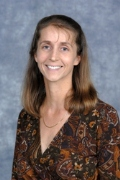Bio
I have long been fascinated with analyzing how ideas of improvement and empowerment from the “First World” get introduced to or imposed on Indigenous peoples through varied development interventions; how Indigenous peoples, especially those filling leadership roles, are induced to engage with these programs; and the resulting desires and tensions that simmer and sometimes erupt among the people Indigenous leaders attempt to govern and influence.
I am a cultural anthropologist and have conducted ethnographic and oral history research with the Kichwa Indigenous people of Napo Province, Ecuador since 1999. My early scholarship examined how the US development strategy of forming agricultural cooperatives to alleviate poverty in the 1970s enabled a group of 200 Indigenous household heads in the Ecuadorian Amazon to gain legal title to 42,000 hectares of land. While these families successfully prevented their territory from being taken over, I revealed how forming the cooperative required leaders and members to engage with several new, very foreign notions of being good cooperative citizens, such as taking on debt for agricultural investments, working for little or no pay, attending frequent meetings, rescinding control of family-owned land to the group, and having their labor newly surveilled by a host of government officials.
My second book, Governing Indigenous Territories, added to this historical analysis a study of the same families’ changing understandings of, and engagements with, Western notions of “nature” and “Indigenous culture.” These changes were largely associated with foreign investment in ecotourism and biodiversity conservation projects starting in the 1990s.
My current research project, Becoming Politicians, examines the experiences of Indigenous women politicians in Napo Province. Until recently, Indigenous women in Napo rarely ran for office and typically only filled supporting roles in male politicians’ political campaigns, but over the last decade, largely due to international efforts to promote women’s equality through development projects and legal reform, many more are running for office and some have even served as Governor, Mayor, and Congresswoman. I examine how, rather than simply being sites of empowerment or of subjectification, political campaigns and periods of office are key sites through which Indigenous women, and—importantly—the many people connected to them through deep relationships, are re-imagining leadership, social obligations, ethnicity, gender, and potential futures. I undertook four extended fieldwork trips to Ecuador between 2021-2023, timed to coincide with different stages of the election cycle. This research was generously funded by a grant from the Wenner Gren Foundation and FIU’s Latin American and Caribbean Center.
I have taught various courses for the department, including ANT 3212 World Ethnographies and ANT 3241 Myth, Ritual, Mysticism. I recently began focusing most of my efforts on teaching anthropological theory, both in the undergraduate course, ANT 3034 Anthropological Theories, and in the graduate-level course, ANG 6083 Theory in Anthropology.
The various doctoral students I have mentored in recent years have conducted research with Indigenous peoples in Ecuador, Colombia, Mexico, and Costa Rica, examining topics such as shifting notions of masculinity associated with engagement with ecotourism and cultural tourism; growing confusion about Indigenous identities associated with state-sponsored construction of tourism-oriented landscapes; grassroots cultural revitalization efforts and their relationship to urban gentrification and threats to sacred sites; and processes of cultural revitalization and change associated with engagement in study abroad programs.
I am currently Associate Chair of the Department of Global and Sociocultural Studies. I am also on the editorial board for the journal LACES (Latin American and Caribbean Ethnic Studies), and I am the Senior Board Member for The Anthropology and Environment Society, a section of the American Anthropological Association. I am also an active member of SALSA, the Society for the Anthropology of Lowland South America.
Selected Publications
Erazo, Juliet S. and Ernesto Benitez. 2022. Becoming Politicians: Indigenous Pageants as Training Sites for Public Life. American Anthropologist 124: 154-64.
Erazo, Juliet S. and Christopher C. Jarrett. 2018. Managing Alterity from within: The Ontological Turn in Anthropology and Indigenous Efforts to Shape Shamanism. JRAI: The Journal of the Royal Anthropological Institute 24(1): 147-163.
Erazo, Juliet S. 2016. Saving the Other Amazon: Changing Understandings of Nature and Wilderness among Indigenous Leaders in the Ecuadorian Amazon. Humanities 5(3), 60; doi:10.3390/h5030060
Erazo, Juliet S. 2013. Governing Indigenous Territories: Enacting Sovereignty in the Ecuadorian Amazon. (Durham, NC: Duke University Press).
Erazo, Juliet S. 2013. REDD: Development Opportunity or Neoliberal Threat? Indigenous Organizations Take Opposing Views. NACLA Report on the Americas 46(1): 55-60.
Erazo, Juliet S. 2011. Landscape Ideologies, Indigenous Governance, and Land Use Change in the Ecuadorian Amazon, 1960-1992. Human Ecology 39: 421-39.
Erazo, Juliet S. 2010. Constructing Indigenous Subjectivities: Economic Collectivism and Identity in the Ecuadorian Amazon. Development and Change 41(6): 1017-39.
Erazo, Juliet S. 2008. Construyendo la Autonomía: Organizaciones Indígenas, Gobierno, y Uso de la Tierra en la Región Amazónica del Ecuador, 1964-2001 (Quito, Ecuador: Abya Yala).
Areas of Expertise
Indigenous Studies; the Amazon; Environmental Anthropology; Development; Social Theory.
Degrees
PhD in Anthropology and Environmental Studies, University of Michigan, 2003
MA in Anthropology, University of Michigan, 1999
MS in Social Sciences of Forest Resource Management, University of Washington, 1997
AB in Government and Environmental Studies, Dartmouth College, 1992
